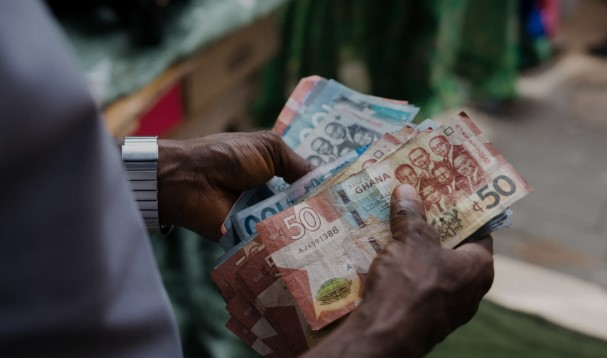Ghana’s cedi is on track to achieve its first annual appreciation against the US dollar since the currency’s re-denomination in 2007. According to
Ghana’s cedi is on track to achieve its first annual appreciation against the US dollar since the currency’s re-denomination in 2007.
According to data compiled by JoyNews Research, the cedi has gained about 36% year-to-date against the US dollar — a remarkable turnaround compared to the average annual depreciation of 14.9% recorded between 2008 and 2024.
Over the past two decades, the local currency has never ended a year stronger than it began. The sharpest declines occurred in 2014, 2022, and 2023, years characterized by severe fiscal imbalances and external economic shocks.
Ghana’s cedi is on track to post its first-ever annual appreciation against the US dollar since the 2007 re-denomination, signaling a remarkable turnaround in the country’s macroeconomic outlook.
According to data from JoyNews Research, the cedi has appreciated by about 36% year-to-date, contrasting sharply with the average annual depreciation of 14.9% recorded between 2008 and 2024.
Strong fundamentals driving gains
Unlike in previous years, the local currency’s performance in 2025 has been buoyed by robust export inflows, particularly from gold and cocoa, and improved fiscal discipline under the IMF Extended Credit Facility (ECF) programme.
The currency’s surge has helped strengthen Ghana’s credit outlook, with the debt-to-GDP ratio falling below 50% for the first time in years. Analysts attribute the cedi’s rally to a mix of tight monetary policy, record foreign exchange inflows, and aggressive interventions by the Bank of Ghana (BoG).
Since 2022, the BoG has injected more than $10 billion into the market to ensure liquidity and stabilize the exchange rate. While 2024 saw about $3 billion in interventions, JoyNews sources indicate that the 2025 figure could exceed that level as the central bank intensifies efforts to sustain stability.
Export boom and remittance support
Foreign exchange inflows have been further strengthened by the Gold bod initiative, which has generated nearly $12 billion from small-scale gold exports. Additionally, remittances and cocoa receipts have provided strong buffers.
Total export revenue for 2025 is projected to reach $25 billion — up 30% from 2024 — with gold exports expected to account for more than 60% of that total.
Restoring confidence in the cedi
The cedi’s performance has long served as a key indicator of Ghana’s economic health, influencing inflation expectations, credit ratings, and investor confidence. By contrast, both previous IMF-supported programmes — in 2014 and 2022 — coincided with steep currency depreciation.
At the IMF/World Bank Spring Meetings in Washington, D.C., Bank of Ghana Governor Dr. Johnson Asiama emphasized his commitment to building a central bank that is “agile and future-ready,” with the cedi as the “currency of choice for domestic transactions.”
“The phenomenon of dollarisation has been there for decades, and we are tackling it to make the local currency the sole legal tender,” Dr. Asiama said, acknowledging that excessive use of foreign currency undermines monetary policy effectiveness.
Despite ongoing challenges, he expressed optimism that ongoing reforms will consolidate the gains made so far.
Policy outlook and future trajectory
President John Mahama stated in June that the government aims to maintain the real exchange rate within the range of GH¢10–GH¢12 per US dollar, targeting an average annual depreciation of about 5% over the medium term.
With international reserves now nearing $11 billion, covering roughly five months of imports, Dr. Asiama noted that market interventions will continue — but without compromising reserve adequacy.
If current trends persist, 2025 could mark a historic turning point in Ghana’s post-redenomination era — positioning the cedi as a symbol of renewed economic stability and a testament to disciplined fiscal and monetary management.
